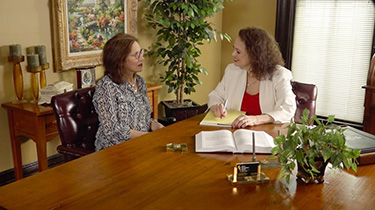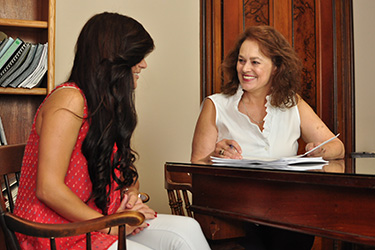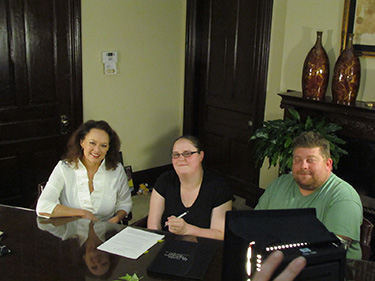 Car accidents are one of the most common causes of brain injury in Kentucky. According to the Brain Injury Alliance of Kentucky (BIAK), motor vehicle crashes are the leading cause of emergency department visits for a traumatic brain injury (TBI) in Kentucky.
Car accidents are one of the most common causes of brain injury in Kentucky. According to the Brain Injury Alliance of Kentucky (BIAK), motor vehicle crashes are the leading cause of emergency department visits for a traumatic brain injury (TBI) in Kentucky.
Additionally, BIAK reported that TBI-related injuries were responsible for 3,522 hospitalizations and 1,034 deaths. Nationwide, nearly 20% of car accident deaths result from TBI.
If you are knocked unconscious in an accident, it is important to seek medical care. Even minor head injuries can have long-term consequences. In fact, symptoms may not appear for days or weeks after the accident.
How Long Can You Be Unconscious After a Car Accident?
A concussion or other TBI may be serious enough to cause loss of consciousness. For example, a car accident might knock you out if your head hits the dashboard, window, or even the airbag.
How long you remain unconscious can vary. While some car accident victims are unconscious for just a few minutes, others may be comatose for weeks or months. The more severe the injury, the longer a person might remain unconscious.
If the brain injury disrupts oxygen flow to the brain, the difference between life and death is a matter of minutes. Anoxic brain injuries occur when trauma completely deprives the brain of oxygen. After just five minutes, brain cells begin to die and severe brain damage can occur.
If a person’s brain remains without oxygen for ten minutes or more, death is likely. Even if they survive, there is a high chance the injury will leave the person with severe and permanent brain damage.
What to Do When Someone Is Unconscious but Breathing After a Car Accident

Depending on the circumstances, limited first aid may be appropriate.
However, car accidents frequently involve spinal injuries that could be worsened if the person is moved. Because it is difficult to tell whether a spinal injury is present, you should always wait for emergency medical personnel.
What Should I Do If I Was Unconscious After a Car Accident?
Even concussions, which may be minor on their own, can result in unconsciousness. If you lost consciousness after an accident, immediately seek medical attention. Losing consciousness is an indicator that there may be further head trauma, and only a doctor can determine the extent of your injuries. We refer all our clients to a reputable physician to make sure they receive the medical care they need.
Do I Have a Concussion?
You should consult a medical professional who is a neurologist to determine if you’re concussed. However, common symptoms include:
- Blurry vision,
- Trouble remembering or other memory issues,
- Dizziness or coordination problems,
- Dilated or asymmetrical pupils,
- Nausea,
- Loss of smell or taste,
- Mood swings,
- Ringing in the ears,
- Trouble sleeping, and
- Trouble focusing.
This is not an exhaustive list, and other symptoms may be present. Even if you didn’t lose consciousness, leaving a concussion untreated poses a significant risk.
Types of Traumatic Brain Injury
TBIs take on a variety of different forms. Car accident victims may suffer one or more kinds of TBI depending on the nature of the crash.
Concussions
Concussions are a common injury caused by car accidents in Kentucky. A concussion usually occurs as the result of hitting the head on part of the car. Whiplash can also cause a concussion. Whiplash is the sudden overextension of muscles in the neck and shoulders. If the whiplash is severe enough, it can cause a concussion as the brain moves around inside the skull.
Even relatively minor concussions can cause sleep issues, concentration difficulties, and memory loss. Unfortunately, many people are unaware they have a concussion because symptoms are not always apparent right away. If you suffer any kind of head trauma, it is important to seek medical care as soon as possible.
Coup-Contrecoup Brain Injuries
A coup-contrecoup brain injury is a contusion, or brain bleed, on opposite sides of the brain as a result of external trauma. Because the brain is suspended in the skull, it moves independently when the head is struck.
As a result, a hit on the head causes the skull to collide with the brain near the external point of impact. This first impact is the coup, and it propels the brain into the opposite side of the skull. The second impact is the contrecoup.
Diffuse Axonal Brain Injuries
Diffuse axonal injury (DAI) happens during rapid rotation of the brain like you would experience in a rollover crash. The accident causes the nerve fibers within the brain to twist and shear, tearing them apart. DAI is a serious type of brain injury that often results in a coma.
How Long Will a Hospital Keep You If You Are Unconscious After a Car Accident?
Hospitals routinely advise patients to stay for observation. After a car accident, a hospital may want to hold a patient for observation to make sure there is no head injury with delayed symptoms. There is no specific rule as to how long the observation period should last, but for concussions and other head injuries, the observation period may be anywhere from 8 to 48 hours.
If the injury is severe, or if the person becomes comatose, the hospital may hold them for days, weeks, or months.
Bowling Green Car Accident Lawyers

We’ve helped thousands of car accident victims recover millions of dollars in compensation for their injuries.
We know that the aftermath of a car accident can be traumatic for you and your loved ones.
Our mission is to provide you with compassionate legal service through a difficult time. If you’ve been injured, contact us today for a free case consultation.
